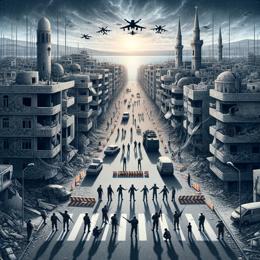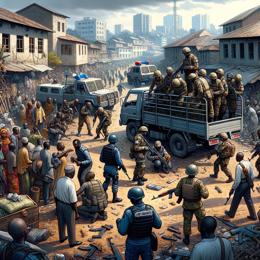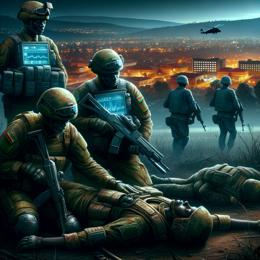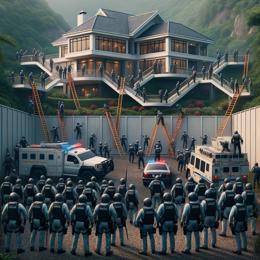Picture: for illustration purposes
Israel-Hamas Conflict Day 10: Aid Convoys Stranded at Egyptian Border Amid Gaza Crisis
Since October 7, escalating violence in the Israel-Hamas conflict has prompted more than 2,750 deaths in Gaza due to Israeli air strikes. This follows a Hamas militant attack that killed approximately 1,400 in Israel. Now, on the 10th day of this unrest, critical aid convoys and foreign nationals are stuck in uncertainty at the Rafah border crossing, the only access point into Gaza not controlled by Israel.
Media reports had circulated, stating an agreement between Israel, Egypt, and the United States to allow the Rafah crossing to be briefly reopened, enabling foreign nationals to escape and much-needed supplies to be delivered to the embattled region. However, by Monday afternoon, the crossing remained shut, contradicting earlier reports. This decision has left gathered convoys on one side of the border and desperate Palestinians and foreigners on the other, according to reports from AFP correspondents and eyewitness accounts.
Israel has imposed a blockade on Gaza, cutting off essential supplies, including food, medicine, water, and electricity. An anticipated ground offensive worsened the situation, disrupting any semblance of normalcy in Gaza's north. NGOs such as Doctors Without Borders have been advocating for the creation of safe zones in the north and regular ceasefire periods.
Additionally, the prospect of displacement echoes the traumatic events of Nakba or 'catastrophe' during the 1948 war surrounding Israel's creation, instilling fear in many Palestinians. During Nakba, about 700,000 Palestinians, the majority of the pre-war population, fled or were forced out. The Israeli fighters fended off an assault by multiple Arab states during that period.
In this context, Egypt has resisted calls to accommodate refugees from Gaza, noting potential forced displacement risks and instead is advocating for diplomatic efforts to defuse the situation.










